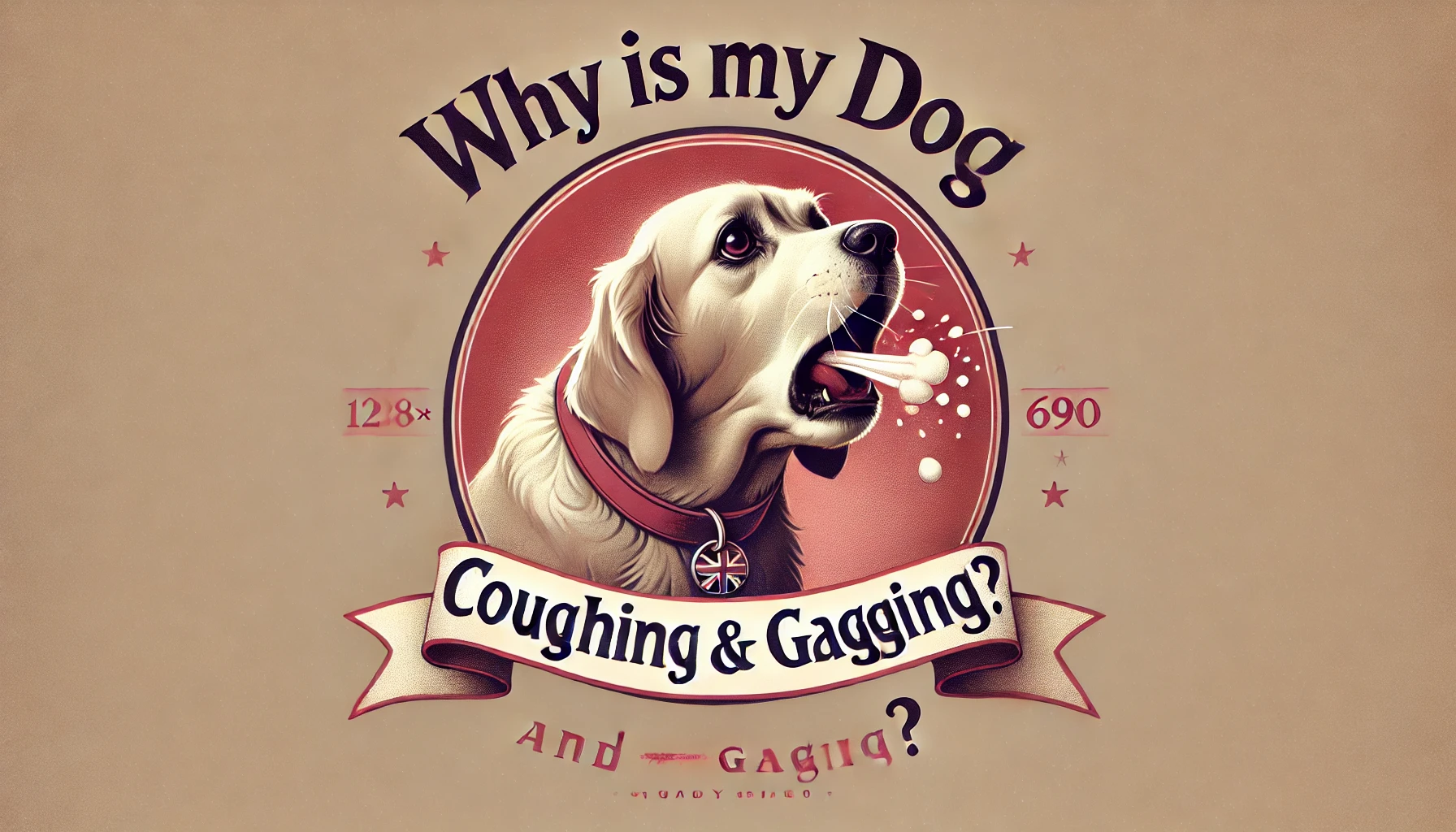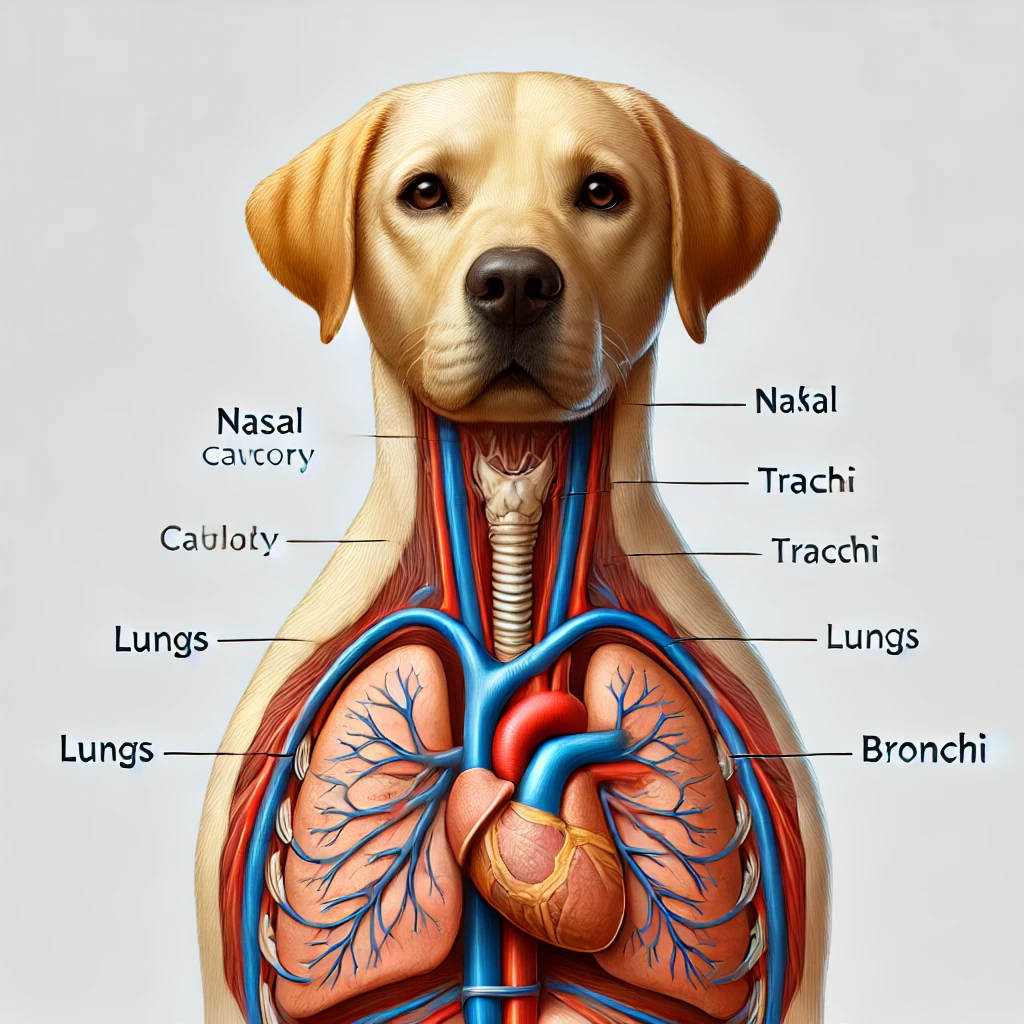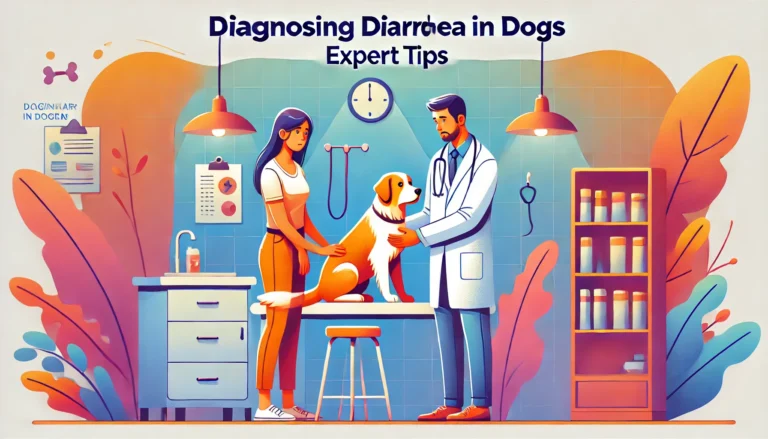why is my dog coughing and gagging?

When your dog starts coughing and gagging, it can be distressing. Understanding the various causes of dog coughing and gagging is crucial for any pet owner. This detailed article explores the reasons, diagnostic processes, and effective treatments for these symptoms, ensuring that you can provide the best care for your pet.

Understanding the Symptoms: Dog Coughing and Gagging
Dog coughing and gagging can occur for various reasons, ranging from benign causes to more severe health issues. Here’s an overview of what might be causing these symptoms in your pet:
Common Causes of Dog Coughing and Gagging
Kennel Cough: One of the most frequent causes of dog coughing and gagging is kennel cough. This highly contagious respiratory disease is known for its distinctive hacking cough that often ends in a gagging sound.
Heart Disease: In older dogs, coughing and gagging can be signs of heart disease. Heart problems may cause fluid buildup in the lungs, leading to coughing and gagging, especially after exercise or excitement.
Foreign Objects: Dogs are curious and often chew on things they shouldn’t. A foreign object stuck in the throat can cause sudden episodes of coughing and gagging.
Allergies: Allergies to pollen, dust, or food can also lead to throat irritation, which may manifest as coughing and gagging.
Table 1: Common Causes of Coughing and Gagging in Dogs
| Cause | Description | Symptoms |
|---|---|---|
| Kennel Cough | Highly contagious respiratory disease | Dry, hacking cough |
| Canine Influenza | Dog flu | Cough, nasal discharge |
| Heart Disease | Poor heart function affecting lungs | Cough, fatigue, difficulty breathing |
| Foreign Object | Ingestion or inhalation of objects | Sudden coughing and gagging |
| Allergies | Reaction to allergens | Coughing, sneezing, itchy skin |
Diagnosing Dog Coughing and Gagging
If you notice your dog coughing and gagging regularly, it’s important to visit the vet to get to the bottom of the issue. Here are some common diagnostic steps:
Physical Examination
A thorough physical exam can help determine the cause of your dog’s coughing and gagging. The vet will check your dog’s throat and listen to their lungs and heart.
Do you know?
Dog gum colors are an essential health indicator to know the initial symptoms of different diseases in dogs.
Diagnostic Tests
Depending on the initial exam, your vet might suggest further tests such as:
- X-Rays: To check the lungs and heart for signs of disease or foreign objects.
- Blood Tests: To detect infections, inflammation, or other health issues.
- Endoscopy: If a foreign body or tumor is suspected, an endoscopy allows a direct look into the throat and airways.
Dog’s respiratory system
Below is a diagram showing a dog’s respiratory system, highlighting areas commonly affected by disorders that cause coughing and gagging:

Treatment Options for Dog Coughing and Gagging
The treatment for dog coughing and gagging varies based on the underlying cause:
- Infections: Antibiotics or antivirals may be prescribed for bacterial or viral infections, respectively.
- Heart Disease: Medications to manage heart disease might include diuretics and heart medications.
- Foreign Objects: Immediate removal under anesthesia might be necessary to relieve your dog’s discomfort.
- Allergies: Antihistamines and lifestyle changes to avoid allergens can help reduce symptoms.
Chart 1: Diagnostic Tools and Their Uses
| Diagnostic Tool | Use |
|---|---|
| Physical Examination | Initial assessment of symptoms |
| X-rays | To view lung and heart condition |
| Blood Tests | To check for infections, blood count anomalies |
| Endoscopy | To look directly inside the throat and airways |
Preventing Dog Coughing and Gagging
Preventive measures can reduce the risk of your dog coughing and gagging. Ensuring your dog stays away from small objects they might swallow, keeping up with vaccinations, and managing allergies effectively are all key strategies.
Chart 2: Prevention Strategies for Common Causes
| Cause | Prevention Strategy |
|---|---|
| Infectious Diseases | Regular vaccinations, avoiding sick dogs |
| Heart Disease | Regular vet check-ups, appropriate diet |
| Foreign Objects | Supervision during play, choosing safe toys |
| Allergies | Identifying and avoiding allergens, regular cleaning |
Conclusion: Managing Dog Coughing and Gagging
Understanding why your dog is coughing and gagging is the first step to effectively managing their health. Regular vet visits and keen observation of your dog’s behavior and environment are essential. Early detection and treatment of the causes of dog coughing and gagging can help ensure your dog leads a healthy, happy life.
By being proactive and attentive, you can help minimize the risk of dog coughing and gagging and keep your furry friend in the best possible health. If you ever have concerns about your dog’s health, consult your veterinarian promptly to address the issue before it escalates.
What can I give my dog for coughing and gagging?
For mild coughing caused by irritants or allergies, a humidifier and keeping your dog well-hydrated can help. However, do not give over-the-counter cough medications without consulting a vet, as some ingredients can be harmful to dogs.
Why is my dog coughing like something is stuck in his throat?
This could be due to a foreign object partially blocking the throat or upper airways, but other causes like kennel cough or tracheal collapse could also produce similar symptoms. A veterinary examination is crucial to determine the cause.
Why is my dog coughing and gagging but not throwing up?
Coughing and gagging without vomiting is often seen in cases of respiratory infections or irritations where the gag reflex is triggered, but there is no actual need to expel stomach contents.
How do I know if my dog’s cough is serious?
A cough is considered serious if it persists for more than a few days, is accompanied by other symptoms like difficulty breathing, lethargy, or loss of appetite, or if it worsens over time. These signs warrant immediate veterinary attention.
How to cure dog cough?
Treatment depends on the cause of the cough. Bacterial infections may require antibiotics, while allergies might be managed with antihistamines or lifestyle changes. Always consult a vet for a proper diagnosis and treatment plan.
What does a dog heart failure cough sound like?
A cough due to heart failure is typically soft and wet, and may sound more like a wheeze. It often worsens with exercise or at night when the dog is lying down.
What does cardiac cough sound like?
Similar to a heart failure cough, a cardiac cough often sounds wet or productive and may be accompanied by difficulty breathing. This type of cough reflects fluid accumulation in the lungs due to poor heart function.
What cough medicine can I give my dog?
Only give cough medicine specifically prescribed by a veterinarian, as human cough medicines can contain ingredients like xylitol or acetaminophen that are toxic to dogs.
What is the last stage of heart failure in dogs?
In the final stage of heart failure, dogs may experience severe symptoms such as constant coughing, difficulty breathing, profound lethargy, and possibly collapse. This stage requires immediate veterinary intervention and often intensive management.






